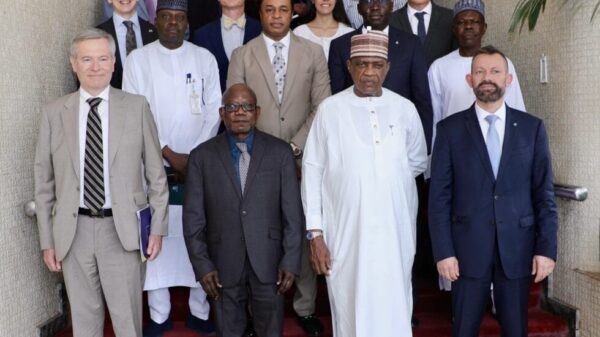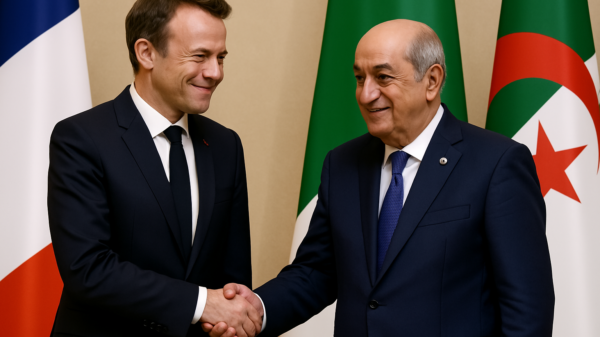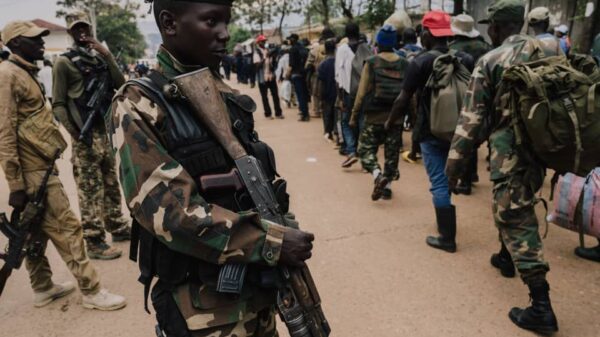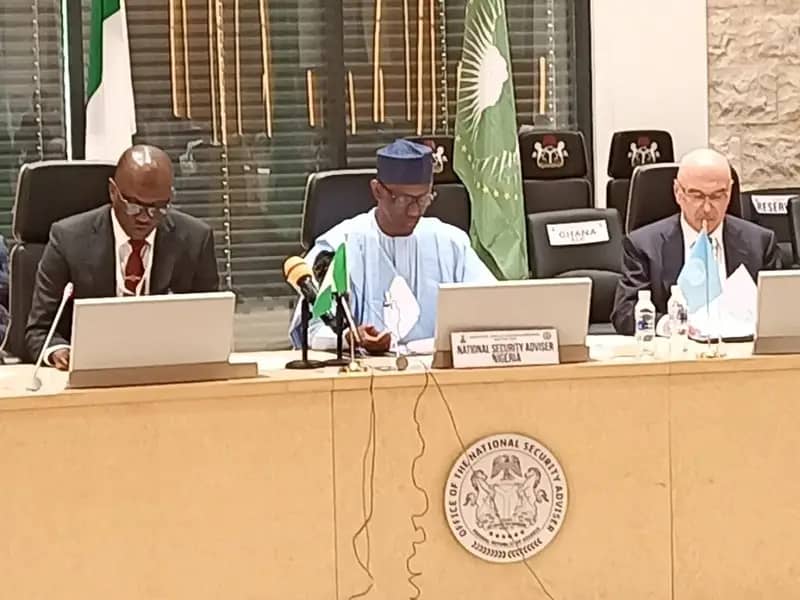African leaders including Heads States and Government, Ministers of Defence, National Security Advisors, and representatives of regional organisations, UN and others have adopted the Abuja Declaration in tackling terrorism in Africa.
The declaration made at the end of the High–Level African Counter–Terrorism Meeting, held on Monday and Tuesday in Abuja, was presented by the National Coordinator, National Counter-Terrorism Centre (NCTC), Maj.-Gen. Adamu Laka.
The event has the theme: “Strengthening Regional Cooperation and Institution Building to Address the Evolving Threat of Terrorism in Africa”.
The declaration among other things recognised the continuing relevance of the instruments adopted by the African Union, including the Communiqués of the African Union Peace and Security Council and the United Nations Security Council as well as relevant normative frameworks of all participating Regional Economic Communities/Regional Mechanisms.
These, according to the declaration are aimed at addressing the scourge of terrorism and violent extremism on the African Continent.
They recalled in particular the desire of the AU to silence the guns on the continent by the year 2030 and note the fact that the spread of terrorism and violent extremism in different parts of the Africa poses a significant threat to its peace, security, and stability.
They also acknowledged that terrorism had hindered progress being made towards the achievement of the UN 2030 Agenda for Sustainable Development and African Union Agenda 2063.
According to the declaration, African leaders acknowledge that the growing activities of terrorist groups and the lethality of their attacks particularly in parts of West Africa and the Sahel, Central, Eastern and Northern Africa, is exacerbating insecurity in these regions.
“Note that terrorist groups with affiliations to Al-Qaeda and/or Da’esh capitalize on local grievances, frequently rooted in inequalities, poor governance, lack of development, violations and abuses of human rights, as well as the proliferation of small arms and light weapons, to forge extensive operational networks and disseminate radical ideologies.
“Further notes that these groups exploit instability and conflict to escalate attacks across the continent and expand their zone of influence and control
“We also acknowledge the need to adequately address the root causes and structural drivers of terrorism, violent extremism in Africa and emphasize the imperative for greater collective action in addressing the challenges of terrorism and violent extremism on the continent given its spiral effects,” it said.
The declaration emphasised an African-led and African-owned approach to countering terrorism; strengthening regional and sub-regional cooperation; encouraging prevention and effective counter measures to address the spread of terrorism; andbuild capacities of Member States critically challenged by terrorism and violent extremist tendencies.
They declared to undertake to expressly reaffirm their collective commitment to strengthening the security of African States in line with the Common African Defemce and Security Policy and within the spirit of finding African solutions to Africa’s security challenges.
They condemn in particular, increasing terrorist threat against vulnerable targets, including critical infrastructure and public places in some parts of the Continent.
They urged international partners to similarly affirm zero tolerance for terrorism regardless of the motives, and to take appropriate practical measures to ensure that their respective territories are not used by terrorists for the organization and or financing of terrorist acts to be committed against other States or their citizens.
They paid tribute to all African citizens and peace keeping and peace enforcement personnel who paid the ultimate sacrifice combating terrorist groups in the Continent and beyond.
In countering terrorism and violent extremism, the leaders underlined the need to promote the meaningful participation, leadership, and representation of women, youth, victims of terrorist activities and/or people in special situations in decision-making processes related to counter-terrorism;
They urged all UN and AU member states to enhance cooperation and collaboration in fighting the scourges of terrorism, radicalisation and violent extremism.
They also called for deepening and intensifying collective security efforts, through joint operations, signing extradition agreements, as well as establishing platforms for sharing their experiences, best practices and lessons in preventing and combating terrorism, radicalization and extremism.
They also smphasised the need to address terrorist propaganda based on inter–religious tensions and the clash of civilisations narrative.
They expressed respect for all faiths and belief systems noting that distorted narratives based on the misinterpretation and misrepresentation of religion to justify violence are often leveraged to recruit supporters, particularly foreign terrorist fighters, mobilize resources and garner support from sympathizers of terrorism groups and activities.
They called upon all external actors to cease support(s) to terrorist groups on the Continent and reiterate the request for the immediate and unconditional withdrawal of all foreign terrorist fighters (FTFs) from the Continent.
“We thank the Government of the Federal Republic of Nigeria, organisers of the High Level African Meeting on Counter Terrorism as well all Member States, international and regional organisations and civil society groups and international partners who participated in this event and contributed to the discussions.
“Given that our objective is to make the process beneficial for all critical situations on the Continent, we decide that the dates and venue for the follow-up meetings of this Process will be made known in due course.
“We request the African Union Peace and Security Council to consider and endorse this Declaration and to recommend same to the United Nations Security Council for appropriate action,” they said.




























